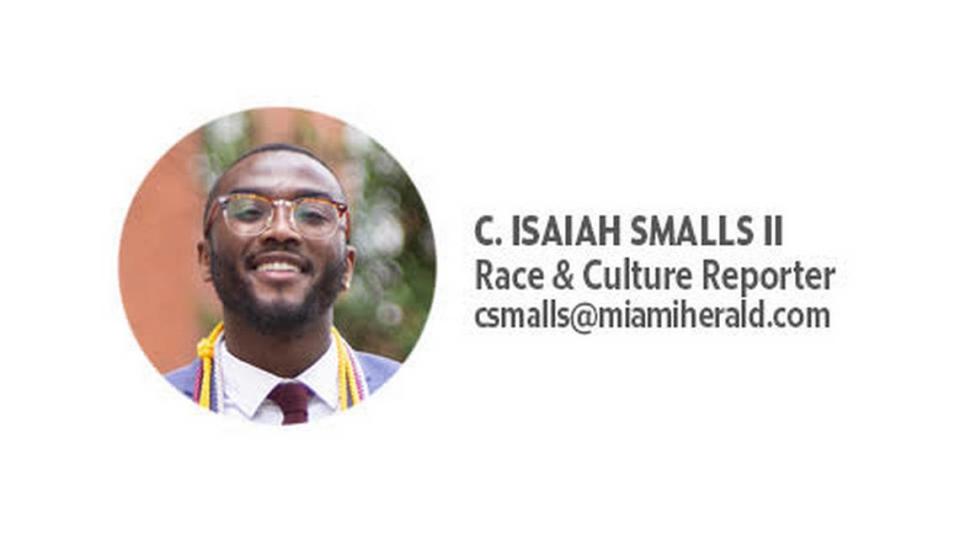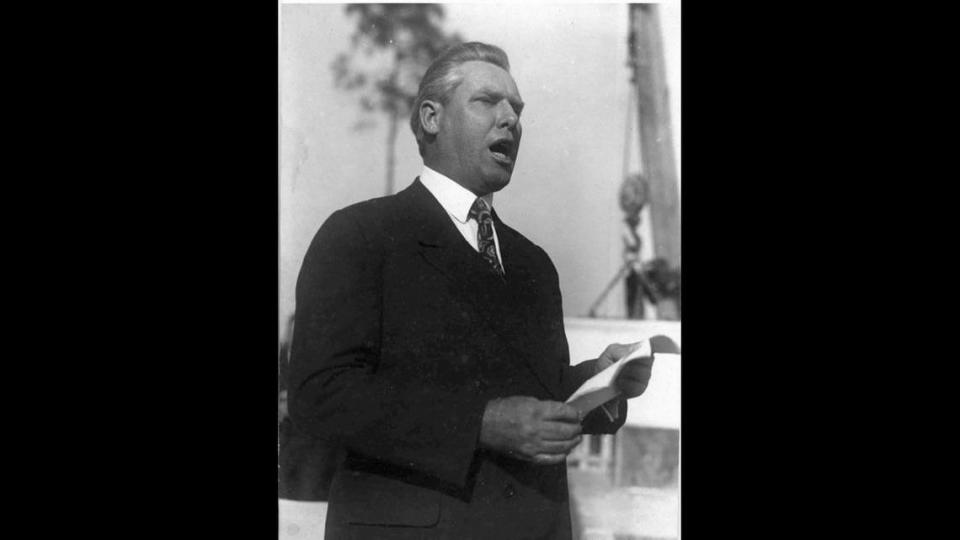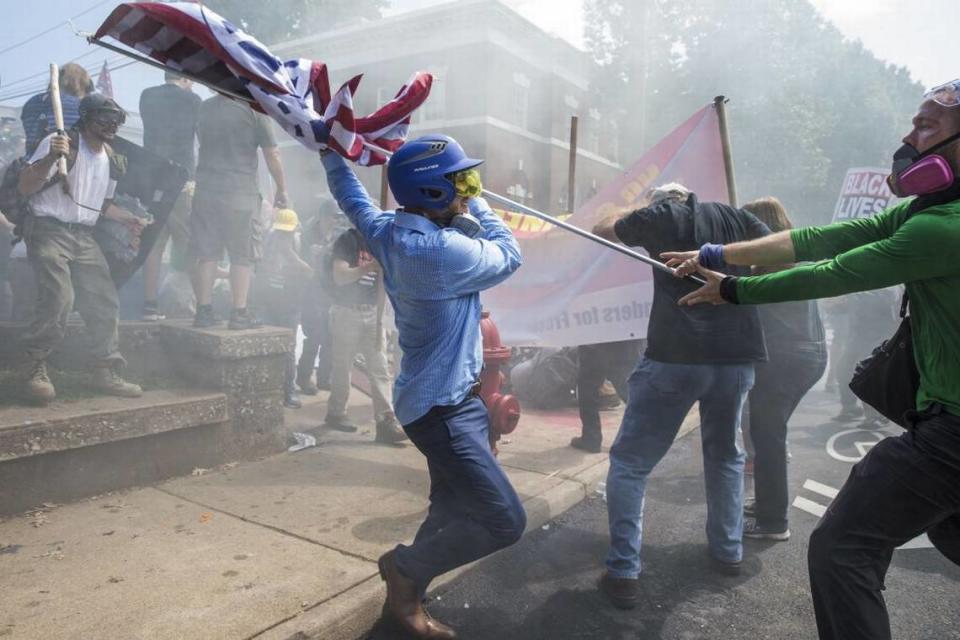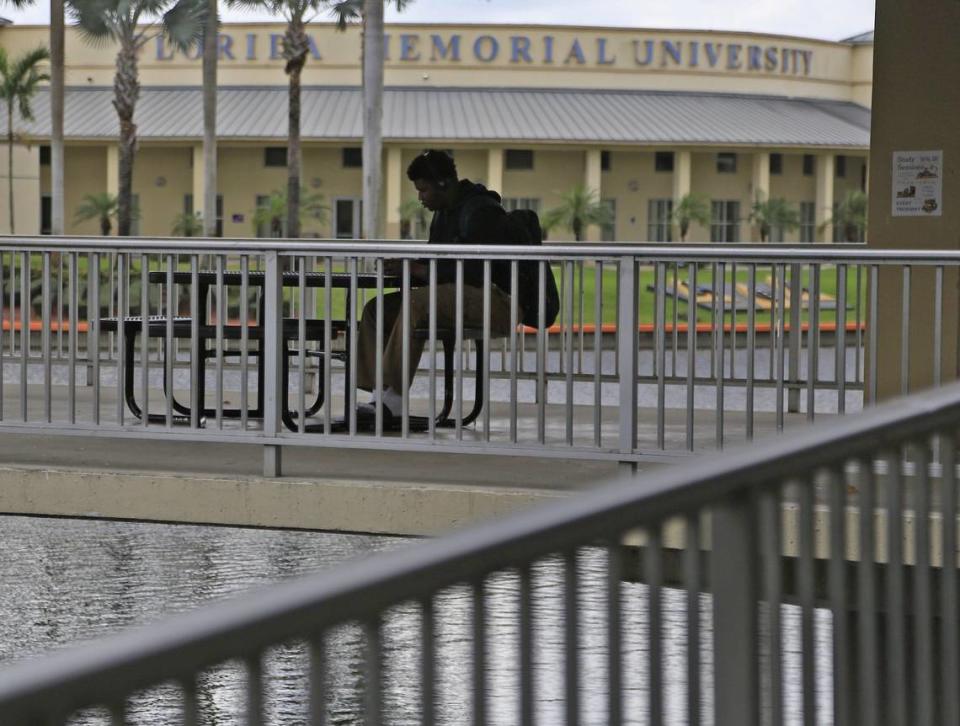The 44 Percent: George Merrick, immigrant vaccinations and white supremacy
I’ve written and rewritten the top for this newsletter multiple times. Whenever I feel uncomfortable, writing provides me a great outlet for expression. That discomfort has swirled around the pit of my stomach like a turbulent tornado all week as I read more and more about what’s happening in Israel. But my musings on geopolitical issues don’t belong here. So instead, I’ll just tell you one of my Pop Pop’s favorite stories, one that was passed down to him from his aunt.
The story begins sometime in the 19th century after a white family bought my great great grandmother. Despite having two kids, she was told that they only wanted her while her babies had to stay. This was common at the time. Slave owners focused solely on profits so it wasn’t strange for a mother or father to be forced to leave the family behind.
But on that fateful day, my great great grandmother just wasn’t having it. When her wagon departed, she immediately jumped off to grab her children. One white man tried to hold her back but failed. Another pitched in but again, failed. A third grabbed her and only then was she finally wrestled back onto the wagon.
The moral of the story, as my Pop Pop loves to say, is that resiliency is in my DNA. It took not one, not two but three white men to hold my great great grandmother back. At the height of slavery. That sacrifice allowed me to be here today and whatever I face should be easy in comparison.
We may or may not be related but I wanted to extend that same advice to you. Standing tall in the face of oppression is important. You might get knocked down but keep fighting. Freedom might not come in your lifetime but the next generation will benefit.

INSIDE THE 305

George Merrick’s name getting boot from University of Miami parking deck:
George Merrick’s name is on almost everything in Coral Gables. The University of Miami, which Merrick helped found, just took a huge step in what they deemed its “ongoing pursuit of racial justice” by removing Merrick’s name from a parking structure.
Merrick’s proposals on the planning board “perpetuated a wealth gap for Black residents and broad inequities in our community that persist to this day,” the school acknowledged in a Monday statement announcing the changes.
Not everyone was fond of the decision, though. UM Law student and Historic Preservation Association of Coral Gables member Amanda Rose penned a petition in an effort to get university leadership to reverse the decision, saying that the reasoning behind the name change was “not only fueled by an irrational perspective of history, but a dishonest depiction of Merrick.”
““There is a current phenomenon to rename and tear down our history and our founders’ legacies,” she wrote. “When I witnessed this manifest in my own community, I felt compelled to act.”
Related stories:
Coral Gables rejects renaming Dixie Highway after Harriet Tubman
‘My time here has been transformational.’ Florida Memorial celebrates in-person graduation
Central American and Haitian immigrant communities have lower vaccination rates:
An analysis courtesy of El Nuevo discovered that the five ZIP Codes with the highest percentages of Central American and Haitian immigrants have vaccination rates at least 10% lower than Miami-Dade County’s average of 55.5%. These Central American communities — which includes parts of Homestead, Allapattah, Little Havana and areas just south of Overtown — have a vaccination rate of 41%, while that of Haitian neighborhoods — including parts of Little Haiti, Biscayne Park, North Miami Beach and Westview — sit at 32.5%. The reasoning behind these disparities range from language barriers to not having a Florida driver’s license to even a lack of transportation.
“It seems to me that it fits neatly into what we know about racial and ethnic segregation in Miami, even within the same Latino neighborhoods,” Jorge Duany, director of the Cuban Research Institute and professor of Anthropology at Florida International University told The Herald. “In a way, what we see in Miami is a sort of reproduction of the discrimination based on ethnicity and race that people bring from their countries of origin.”
There are efforts underway to shrink this disparity, though. Homestead, for example, did a outreach campaign that sought to reassure residents that registering for the vaccine won’t lead to deportation. Additionally, the county mayor’s office has pre-registered more than 1,500 people as part of their VACS Now program to inoculate these undervaccinated communities. But people like Wendi Walsh, the president and treasurer of Unite Here Local 355, a union that represents more than 7,000 of South Florida’s hotel, airport and food service workers, believe there needs to be more of an effort to find “trusted” sources to encourage immigrants to get vaccinated.
“People really need a trusted messenger to encourage them to get the vaccine. The trusted messenger is not a generic physician or an elected official,” Walsh said.
OUTSIDE THE 305

White supremacists are biggest domestic terrorism threat:
Today’s episode of “We told you so” features Attorney General Merrick Garland and Homeland Security Secretary Alejandro Mayorkas telling senators that the biggest domestic terrorist threat is none other than white supremacists. This marked a stark departure from the last administration, which was more concerned with the radical left, a focus that experts believe obscured the more pressing reality of an attack from far-right extremists.
The rise of the far right reached a head at the Jan. 6 Capitol attack, which Garland said was evidence of a greater need to focus on domestic extremism.
“I have not seen a more dangerous threat to democracy than the invasion of the Capitol,” Garland told the Senate Appropriations Committee on Wednesday.

Biden invested big in HBCUs but will it be enough?:
No.
But it’s a start.
All 107 Historically Black Colleges and Universities will receive a portion of $2.6 billion from the federal government as part of President Joe Biden’s American Rescue Plan. Although this sort of investment is unheard of, it’s clear that HBCUs need more than just a one-time gift.
“Numbers can be historic, but we can still need so much more to be funneled in,” Dominique Baker, a higher-education professor at Southern Methodist University, told The Atlantic’s Adam Harris.
The biggest issue now facing HBCUs, according to Baker, is state government’s discrimination. Harris reported that Tennessee shorted Tennessee State University $500 million between 1957-2007 while Maryland essentially did the same for its four public Black colleges over the past 100 years. The cost of Maryland’s discriminatory practices was at least $2.73 billion, Harris wrote.
“Racism is expensive, and we’re starting to see the bill,” Katherine Wheatle, a Lumina Foundation federal-policy analyst, told Harris.
Also, I couldn’t end this section without shouting out the second best HBCU in the land, my alma mater Morehouse College. Why did I say “second best?” Because nothing, and I mean nothing, is better than Spelman College.
HIGH CULTURE

New sketch show ’That Damn Michael Che’ premieres:
Regardless of what the Los Angeles Times may think, “That Damn Michael Che,” a new sketch comedy series starring Michael Che of “Saturday Night Live,” is definitely worth the watch. For one, the series is timely, with episodes centered around policing, vaccine hesitancy and even sex work. Don’t get me wrong; Che’s sketches, although topical, sometimes struggle to be both comedic and critical in the same brand of Dave Chappelle.
Don’t just take my word for it, though. The series is available now on HBO Max. Take a look and let me know your thoughts!
Where does “The 44 Percent” name come from? Click here to find out how Miami history influenced the newsletter’s title.

 Yahoo Movies
Yahoo Movies 
